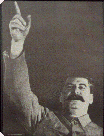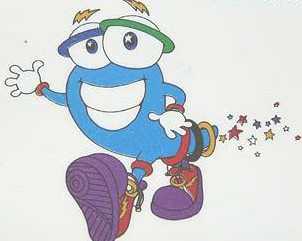Posted on March 14, 2014
Costas
In Context
His
critics owe no apologies
by
Daniel Clark
In a March 3rd appearance on The O’Reilly Factor, NBC sports anchor Bob Costas complained that right-wing ideologues had taken his Olympic remarks about Vladimir Putin “out of context.” Let’s see if that’s true.
On the night of the opening ceremonies, Costas said this about the Russian president: “Just in the past year, Putin brokered a deal to allow Syria to avoid a U.S. military strike by giving up its chemical weapons, and helped bring Iran to the negotiating table over its nuclear intentions. He has repeatedly showcased his confidence to take on the West, particularly the United States, offering asylum to National Security Agency leaker Edward Snowden, enticing Ukraine to back out of a deal to join the European Union, and passing laws viewed as repressive to members of the gay community and their supporters. He even wrote an op-ed in The New York Times, published last September 11th, explaining his view of the situation in Syria and chastising President Obama for calling America ‘exceptional.’ A month later, Forbes magazine named Putin ‘The World’s Most Powerful Person,” knocking Obama down to number two.”
 In
Costas’ view, his detractors are being dishonest when they characterize this as
a flattering portrayal, but that’s just what it is. Sure, it contains notes of disapproval, but
it’s a mixed bag, with some positive references, and others that are framed in
the gentlest manner possible. To say
that Putin “has repeatedly showcased his confidence to take on the West” makes
him sound like a respected opponent.
Saying he “has brazenly antagonized the West without provocation” would
have been more realistic.
In
Costas’ view, his detractors are being dishonest when they characterize this as
a flattering portrayal, but that’s just what it is. Sure, it contains notes of disapproval, but
it’s a mixed bag, with some positive references, and others that are framed in
the gentlest manner possible. To say
that Putin “has repeatedly showcased his confidence to take on the West” makes
him sound like a respected opponent.
Saying he “has brazenly antagonized the West without provocation” would
have been more realistic.
Furthermore, did Putin really “entice” the Ukrainians not to join the EU? How, by taking off his shirt and winking at them? Perhaps he poisoned them all, and then enticed them with the antidote.
Costas told Bill O’Reilly that this oration “was a setup to
a conversation in which Putin would immediately be called an autocrat, and his
desire to expand the former Soviet empire – now the Russian empire – his desire
to make his nation more and more  influential
and consequential on the international stage [sic].”
influential
and consequential on the international stage [sic].”
In this discussion, New Yorker editor David Remnick said that Putin wanted “to reassert Russia on the world stage, and the Olympics is the greatest pop culture stage that there is.” Costas implies that this is necessarily a bad thing, but his other guest, former Soviet propagandist and Donahue co-host Vladimir Pozner didn’t think so.
“When [Putin] came to power in the year 2000, Russia was falling apart,” he said. “The United States looked on Russia as a second-rate country … He has brought Russia back … The Russians are very proud people. They feel that they’re a great nation, and that’s really why they like him.” The harshest criticism of Putin in the whole segment was Remnick’s acknowledgment that “he is an autocrat; he is not a democrat,” but how damning did even that sound, with Pozner there to offer the pro-autocrat point-of-view?
Nobody mentioned that Putin has opposed our plans for a missile defense shield in Europe, because it would devalue the nuclear capabilities he has been selling to Iran. If anyone had, Costas’ reference to the Iranian nuke talks would have raised a red flag, so to speak.
During the O’Reilly interview, in which Costas accused his critics of “a kind of cut and paste thing that isn’t even journalism,” he and his sympathetic host cited the harsher language he had for Putin in subsequent broadcasts, as if this proved his critics wrong. He further revised and extended his remarks by telling O’Reilly, “Vladimir Putin is a former KGB operative, and he’s a villain. He’s an adversary. Period.”
That settles any question about what Costas’ opinion is, but it doesn’t justify his indignation at the initial criticism. If there’s a question about the veracity of those who denounced his February 6th remarks, whatever he said four days, two weeks, or one month later is contextually irrelevant.
If it’s context that Costas wants, he needn’t look any further than the video tribute to Russia that aired during NBC’s Olympic coverage, also on Feb. 6th:
“Russia overwhelms. Russia mystifies. Russia transcends. Through every stage of its story, it’s resisted any notion of limitation – through every reinvention, only redoubling its desire to cast a towering presence. The empire that ascended to affirm a colossal footprint. The revolution that birthed one of modern history’s pivotal experiments. But if politics has long shaped our sense of who they are, it’s passion that endures as a more reliable route to their collective heart – what they build, when aspiration is lifted by imagination – what they craft, through the wonder of every last detail – how magical the fusion of sound and movement can be – how much a glass of distilled perfection and an overflowing table can matter. Discover the Russian people through these indelible signatures. Discover what we share with them through the games that open here tonight.”
You read that right. A mass-murdering, totalitarian prison-state is what NBC nonjudgmentally calls a “pivotal experiment.” Mind you, Putin was part of that experiment, the demise of which he considers to be “the greatest tragedy of the 20th Century.”
So let’s “reset” that Olympic opening night. The NBC video brags about what a massive and powerful country Russia is, with majestic oratory set against swelling music worthy of a Hollywood epic. Costas adds his commentary, which criticizes Putin as anti-gay, while agreeing about Russia’s great power and influence, and crediting Putin with resolving international conflicts. Remnick and Pozner criticize Putin as anti-gay, but agree that he has improved Russia’s standing in the world, for which Pozner says he’s been rewarded with the gratitude of his people. In addition, Costas interviews President Obama, who joins him in criticizing Putin as anti-gay, but otherwise gives him the benefit of every doubt. One could barely help but get the impression that if only Vlad the Autocrat were to bake a cake for a same-sex couple, all else would be forgiven.
 Even
the supposedly fiery rebuke Costas delivered on Feb. 20th lacked the
Romneyesque certainty of the declaration he later
made on the Factor. “If [the games] are successful on their own
terms, as appears to be the case, then at least in some corners it will help to
burnish the image of a regime with which much of the world takes significant
issue,” he said. “No amount of Olympic
glory can mask those realities any more than a biathlon gold medal, though
hard-earned and deeply satisfying as it is, can put out the fires in Kiev.”
Even
the supposedly fiery rebuke Costas delivered on Feb. 20th lacked the
Romneyesque certainty of the declaration he later
made on the Factor. “If [the games] are successful on their own
terms, as appears to be the case, then at least in some corners it will help to
burnish the image of a regime with which much of the world takes significant
issue,” he said. “No amount of Olympic
glory can mask those realities any more than a biathlon gold medal, though
hard-earned and deeply satisfying as it is, can put out the fires in Kiev.”
Perhaps Mr. Context could explain why he so obliquely referenced Russia’s aggression toward Ukraine, while in the same breath being mindful not to disparage its athletes’ accomplishments. This trivialization was somehow meant to drive home the reality that “much of the world takes significant issue” with Russia – or else that the Olympics will burnish Russia’s image in some corners. Whichever.
Imagine Ronald Reagan calling the Soviet Union an empire “with which much of the world takes significant issue.” That’s so wimpy, it doesn’t even assign any blame, but only frowns on the Russians for deviating from an international consensus. Is Costas bucking for secretary general of the UN?
As long as Costas remained focused on Putin and the increasingly authoritarian state of Russia, his criticisms were conspicuously opaque and tentative. It was only in his appearance with O’Reilly, when his purpose was to scold his conservative critics, that he became animated enough to speak in direct and judgmental terms. When he called Putin a villain, his anger was directed not at Putin himself, but at the people who – although he would never phrase it this way – had repeatedly showcased their confidence to take on the liberal sports media.
The
Shinbone: The Frontier of the Free Press